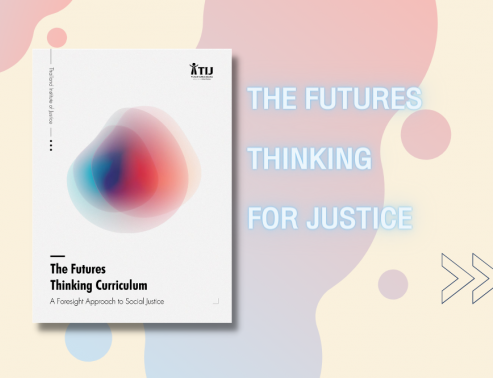For nearly half a decade from 2019 - 2023, the Thailand Institute of Justice’s (TIJ) Office of Justice Innovation has been teaching human-centered design and foresight in the context of social justice. These diverse educational experiences include our flagship first-year undergraduate course Rethinking Justice for Innovators at ChulalongkornSchool of Innovation; first-year course Law and Society at the Faculty of Law, at Chulalongkorn University in Thailand; our series of foresight workshops with officers of the formal justice system, international private and public stakeholders; and many knowledge sharing sessions of justice design tools for university educators across the country.
This handbook is the culmination of our insights in justice education, formulated into a working model we call ‘Social Justice Literacy’. In short, Social Justice Literacy is a critical skill for every citizen to contribute to a society worth living in. It is a model that we have begun to explore here and will continue to develop in our future work.
Who is this Handbook for?
Educator: Particularly Thai higher educators who are looking to incorporate social justice into their current courses and curricula, both those who are in the process of understanding how social justice could be integrated and educators who are ready to get started with the integration.
Policy maker: This handbook can serve as a resource for policymakers, education administrators, and curriculum designers who are looking to change and introduce people-centered justice effectively in higher education.
What is Actually in this Handbook?
The handbook provides an overview of the process of incorporating social justice into a course at the university level. Its contents range from background research on existing programs at various universities to the lessons learned from our pilot experiences in real classroom settings.
The handbook includes:
- the mechanics of determining where social justice fits into any given course and reframing the process as literacy-building.
- specific action items for educators to consider before, during, and after running their course.
- a sample of common exercises that we adapted to include justice elements.
- detailed accounts of how our pilot cases are implemented in different settings - from a short project, to a course redesign, to a student club - so that you may find inspiration for your own journey.
- resources and avenues on how we work together towards our mission of improving social justice literacy in higher education.
Note
The content of the handbook is based on the experiences and opinions of TIJ Innovation Unit. It is only the beginning and we hope you will come along on this journey with us as we explore and iterate on this collective life-long learning of social justice.
This work is under creative commons. We encourage you to give it a try and send us feedback - we’d love to hear your stories. Last but not least, we hope this handbook can empower you to contribute to a more justice society, present and future.





